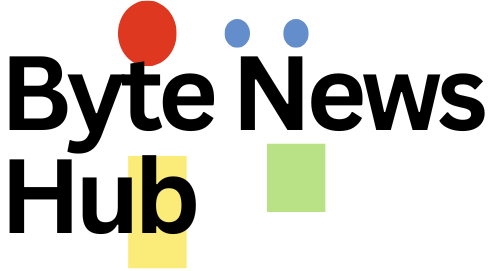Blockchain technology, originally designed to support cryptocurrencies like Bitcoin, has evolved far beyond its initial purpose. Today, it’s a transformative force across industries, revolutionizing the way businesses operate. By offering unparalleled transparency, security, and efficiency, blockchain is reshaping business models and creating new opportunities.
This article explores how blockchain is impacting business operations and why it’s becoming a critical technology for the future.
1. Understanding Blockchain Technology
At its core, blockchain is a decentralized digital ledger that records transactions across multiple computers. Key features include:
- Decentralization: Data is distributed across a network of nodes, eliminating the need for a central authority.
- Immutability: Once data is recorded, it cannot be altered without consensus, ensuring integrity.
- Transparency: Every participant in the network has access to the same information, fostering trust.
These characteristics make blockchain an ideal solution for industries requiring secure and transparent record-keeping.
2. Supply Chain Management
Blockchain is revolutionizing supply chain management by improving traceability and efficiency. Applications include:
- Product Tracking: Companies can monitor a product’s journey from origin to consumer, ensuring authenticity.
- Fraud Prevention: Immutable records reduce the risk of counterfeit goods.
- Streamlined Operations: Automated smart contracts enable faster and error-free transactions.
For example, Walmart uses blockchain to track food products, reducing the time it takes to trace contamination from days to seconds.
3. Financial Services Beyond Cryptocurrencies
The financial sector has embraced blockchain for its ability to streamline processes and enhance security. Key use cases include:
- Cross-Border Payments: Blockchain eliminates intermediaries, reducing transaction costs and times.
- Fraud Detection: Transparent ledgers make it easier to identify and prevent fraudulent activities.
- Tokenization: Assets such as real estate and art can be tokenized, enabling fractional ownership and increased liquidity.
Blockchain-based platforms like Ripple and Stellar are transforming how financial institutions handle international transactions.
4. Healthcare and Medical Records
In the healthcare sector, blockchain is addressing critical issues like data security and interoperability. Key applications include:
- Secure Patient Records: Blockchain ensures that medical data is accurate, private, and accessible only to authorized parties.
- Drug Traceability: Pharmaceutical companies use blockchain to track the production and distribution of medicines, combating counterfeit drugs.
- Clinical Trials: Immutable records improve transparency in clinical trial results, fostering trust.
5. Real Estate and Smart Contracts
Blockchain is streamlining real estate transactions by automating processes and increasing transparency. Benefits include:
- Smart Contracts: Automated agreements eliminate the need for intermediaries, reducing costs and delays.
- Property Records: Immutable ledgers ensure accurate and tamper-proof property records.
- Fractional Ownership: Tokenization enables investors to own fractions of high-value properties, increasing accessibility.
6. Decentralized Identity Management
Traditional identity management systems are prone to fraud and data breaches. Blockchain offers a more secure alternative by:
- Self-Sovereign Identity: Individuals control their personal data and share it only when necessary.
- Enhanced Security: Decentralized systems reduce the risk of data breaches.
- Efficiency: Blockchain eliminates the need for repeated identity verifications across platforms.
Platforms like Microsoft’s Azure Active Directory are leveraging blockchain for decentralized identity solutions.
7. Energy and Sustainability
Blockchain is driving innovation in the energy sector by promoting sustainability and efficiency. Key initiatives include:
- Peer-to-Peer Energy Trading: Consumers can buy and sell excess energy directly through blockchain platforms.
- Renewable Energy Certificates: Blockchain ensures the authenticity of renewable energy credits, preventing fraud.
- Carbon Credit Tracking: Transparent records help businesses monitor and reduce their carbon footprints.
8. Challenges and Limitations
While blockchain offers numerous benefits, it also faces challenges that businesses must address:
- Scalability: Current blockchain networks struggle to handle large volumes of transactions efficiently.
- Regulation: Lack of standardization and regulatory frameworks hinders widespread adoption.
- Energy Consumption: Some blockchain networks, like Bitcoin, require significant energy, raising sustainability concerns.
- Integration Costs: Adopting blockchain can be expensive, particularly for small businesses.
9. Future Trends in Blockchain
The potential of blockchain is vast, and its applications will continue to grow. Emerging trends include:
- Interoperability: Efforts to enable different blockchains to communicate seamlessly.
- Decentralized Finance (DeFi): Expansion of blockchain-powered financial services beyond traditional banking.
- NFTs for Business: Non-fungible tokens (NFTs) are finding use cases in marketing, gaming, and intellectual property management.
- Green Blockchain: Development of energy-efficient consensus mechanisms to address environmental concerns.
10. Adopting Blockchain in Your Business
To leverage blockchain effectively, businesses should:
- Identify Use Cases: Determine areas where blockchain can add value, such as supply chain or customer verification.
- Collaborate with Experts: Work with blockchain developers and consultants for seamless integration.
- Start Small: Pilot blockchain projects to test feasibility before scaling.
- Stay Updated: Monitor blockchain developments and adapt to emerging opportunities.
Conclusion
Blockchain technology is no longer confined to the realm of cryptocurrencies. Its potential to transform business operations across industries is immense. By enhancing transparency, security, and efficiency, blockchain is setting the stage for a more innovative and interconnected future. Businesses that embrace this technology will gain a competitive edge, driving growth and resilience in an increasingly digital world.

